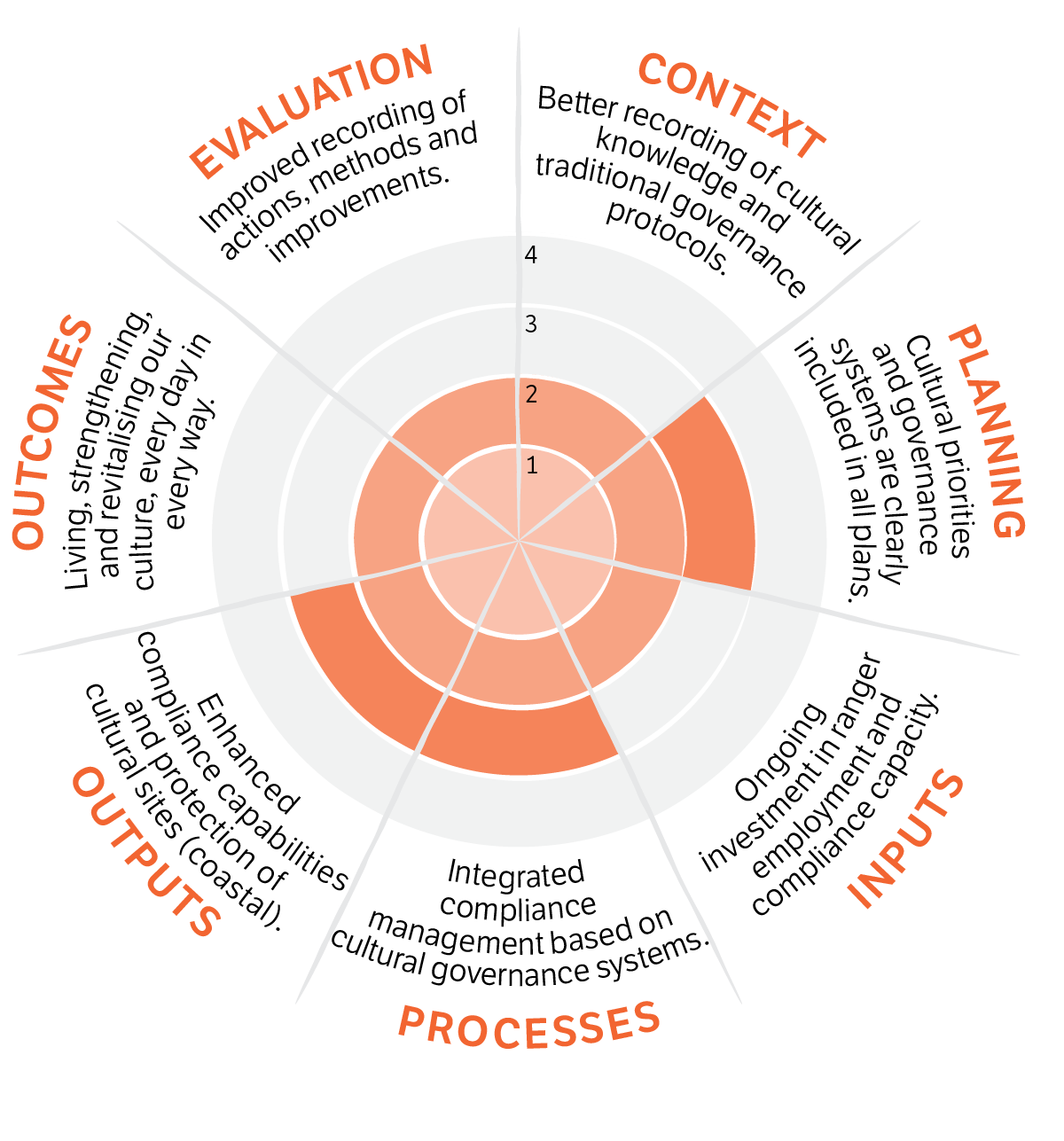The cultural identity of Torres Strait’s traditional inhabitants is expressed and maintained through Ailan Kastom (Island Custom) and Aboriginal Law/Lore – the system of knowledge, traditions, laws, protocols, and practices that maintain Torres Strait Islander and Aboriginal peoples’ relationships to others and their connections to country.
This body of knowledge has been passed down through generations by tribal leaders and Elders to heads of clans and kin through sit downs, cultural teaching, song, dance, myths, legends, art, and stories. In the Torres Strait, each Aboriginal and Torres Strait Islander group has its own parliamentary and social system administered through a structure known as Kwod (Kemer Kemer Meriam, Kulkalgal, Guda Maluilgal and Maluilgal nations), or Kergne (Kaiwalagal nation) for creating and managing all of the associated processes and protocols applicable to the communal structure.
Although similar principles may exist between law and Lore/Kastom, it is important to recognise there is a distinction and Lore/Kastom, like law, can respond to change by absorbing contemporary influences and adapting to its consequences (e.g. Coming of the Light).
The enduring connections that Torres Strait Islander and Aboriginal people have with their country, and their cultural heritage, may be manifested in tangible and intangible ways. Maintaining and strengthening Ailan Kastom and Aboriginal Law/Lore is vital to build community capacity to sustainably manage land and sea resources into the future.

